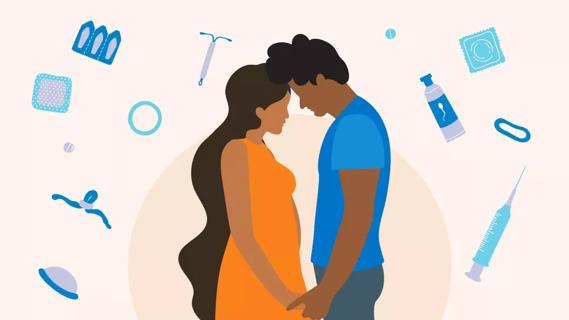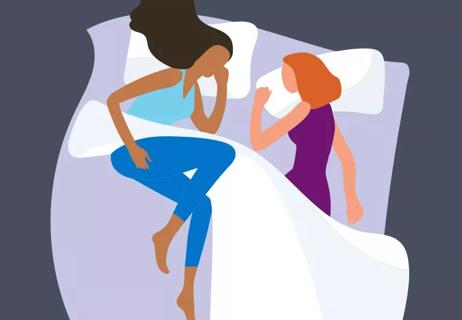Medications and devices can help you get the satisfaction you deserve

You deserve a healthy and happy sex life. We all do. Sex is a basic human function. And good sex can even do your mind and body a whole lotta good.
Advertisement
Cleveland Clinic is a non-profit academic medical center. Advertising on our site helps support our mission. We do not endorse non-Cleveland Clinic products or services. Policy
But maybe you’ve been finding that you aren’t able to orgasm as often as you used to. Or maybe you’ve been chasing orgasms without satisfaction throughout your sex life.
Sexual dysfunction affects 30% to 40% of women. Some sexual issues are more related to your libido (or interest in sex). That’s called hypoactive sexual desire disorder, and it’s pretty common.
What’s also common is having an interest in sex but not being able to consistently achieve orgasm. It’s called anorgasmia, in doctor-speak. Anorgasmia can happen to women early in their sex life, long after menopause and everywhere in between.
Knowing you’re not alone is a start. But where do you go from there?
We talked with Ob/Gyn Salena Zanotti, MD, about why women can have difficulty achieving orgasm and what to do about it.
We don’t often think about what needs to happen to go from, “OK, that’s nice,” to a satisfying sexual release, but it’s actually a pretty complicated thing.
“Your mind needs to stay clear and focused. Your nerves need to remain sensitive, and blood needs to flow to all the right places,” Dr. Zanotti explains. “There are mental, emotional and physical aspects to sex, and, unfortunately, a variety of problems can interfere with getting to orgasm.”
Advertisement
She also says that only 10% of women easily climax, and many find they don’t orgasm at all during vaginal sex.
“I see many people in my practice who feel relief just to know they are ‘normal’ when they have trouble climaxing with vaginal sex,” Dr. Zanotti continues. “It’s important to understand that this experience is very typical.”
For many people who are chasing an elusive orgasm, it could be that some medical conditions and lifestyle factors get in the way. Common ones include:
“If you think medication, hormonal changes or a medical condition is affecting your sex life, your healthcare provider can help,” Dr. Zanotti says. “Some people can get embarrassed about talking about sexual dysfunction, but in truth, your provider is here to help, not to judge.”
If hormones and medical conditions aren’t the case, another reason vaginal sex may not do the trick for you is strictly physical. For some people, your most sensitive areas may not get the … ahem … attention they deserve during vaginal intercourse.
During sexual contact (whether through masturbation or with a partner), achieving orgasm is all about stimulating your erogenous zones. Those are the places on your body that get your sexual juices flowing.
There are several places on your body that aren’t even connected to your genitals that can get your sexual blood pumping. They include your face, lips, neck and breasts.
Additionally, between your legs is a hotbed of pleasure-inducing nerve endings. And while you probably know the basic lay of the land down there, knowing the specifics of which points of your anatomy can bring on the most pleasure isn’t necessarily obvious.
While your vaginal opening itself can be an erogenous zone, it may not be the most sensitive one, Dr. Zanotti notes. That’s one reason vaginal intercourse alone may not give you a full sense of satisfaction.
Rather, you may find that you can experience greater sexual pleasure from stimulating these other erogenous zones, either during vaginal intercourse or on their own:
Advertisement
OK, so you’ve ruled out medical causes and tested out various erogenous zones and … still no fireworks? It’s not your fault. It’s not your partner’s fault. And there are other options, Dr. Zanotti says.
There are medications that have shown some benefit for women living with anorgasmia.
The antidepressant and smoking cessation drug bupropion (also known by the brand name Wellbutrin®) might help. Some providers may also prescribe the erectile dysfunction drug Viagra®, particularly to combat sexual dysfunction in anyone taking SSRI antidepressants.
Your provider may also recommend an aptly named topical ointment known as “Scream Cream.” It’s a custom-blended prescription cream made by a compounding pharmacy. You apply it to your clitoris about 15 to 30 minutes before a sexual encounter to increase blood flow.
While it hasn’t been scientifically proven to be effective, Dr. Zanotti says some people may find it can help increase sensitivity and encourage orgasm.
The U.S. Food and Drug Administration (FDA) has approved two devices that can help women achieve orgasm.
One is called the Intensity™ device. It stimulates the pelvic muscles that contract with climax and also provides direct clitoral stimulation. The other is a prescription device called Eros that uses a gentle vacuum to stimulate blood flow to the clitoris. It can be used during sex or masturbation or as a way to condition your sexual response.
Advertisement
It’s important to note that there are other issues, besides orgasmic dysfunction, that fall under the umbrella of sexual dysfunction. They include low libido, painful sex, difficulty being aroused and even sexual aversion.
“All of these issues are very real,” Dr. Zanotti states. “Sexual dysfunction can cause distress and can affect relationships, as well as your own well-being. The good news is that treatments are available, which many people don’t realize.”
Sexual dysfunction can be isolating. It can be frustrating. It can keep you from fully enjoying the active sex life you deserve. But don’t hesitate to talk with your doctor. It’s a real problem. And there are real solutions available.
Advertisement
Learn more about our editorial process.
Advertisement

Arousal without orgasm can be uncomfortable, but it’s no reason to pressure sexual interactions

Some foods are thought to rev up your sex drive, despite lack of scientific evidence

If anxiety is keeping you from having the sex life you want, communication, education and therapy can help

Anorgasmia is a fairly common concern with a wide range of physical and psychological causes

Your sexual history directly influences your physical, mental and emotional health in a multitude of ways

‘Safer sex’ means STI prevention, avoiding unintended pregnancies and psychologically safe practices for everyone

Medications and therapy can help get your groove back

It’s perfectly normal for gas pockets to ‘evacuate’ during the motions of sex

Wearing a scarf, adjusting your outdoor activities and following your asthma treatment plan can help limit breathing problems

Your diet in the weeks, days and hours ahead of your race can power you to the finish line

When someone guilt trips you, they’re using emotionally manipulative behavior to try to get you to act a certain way